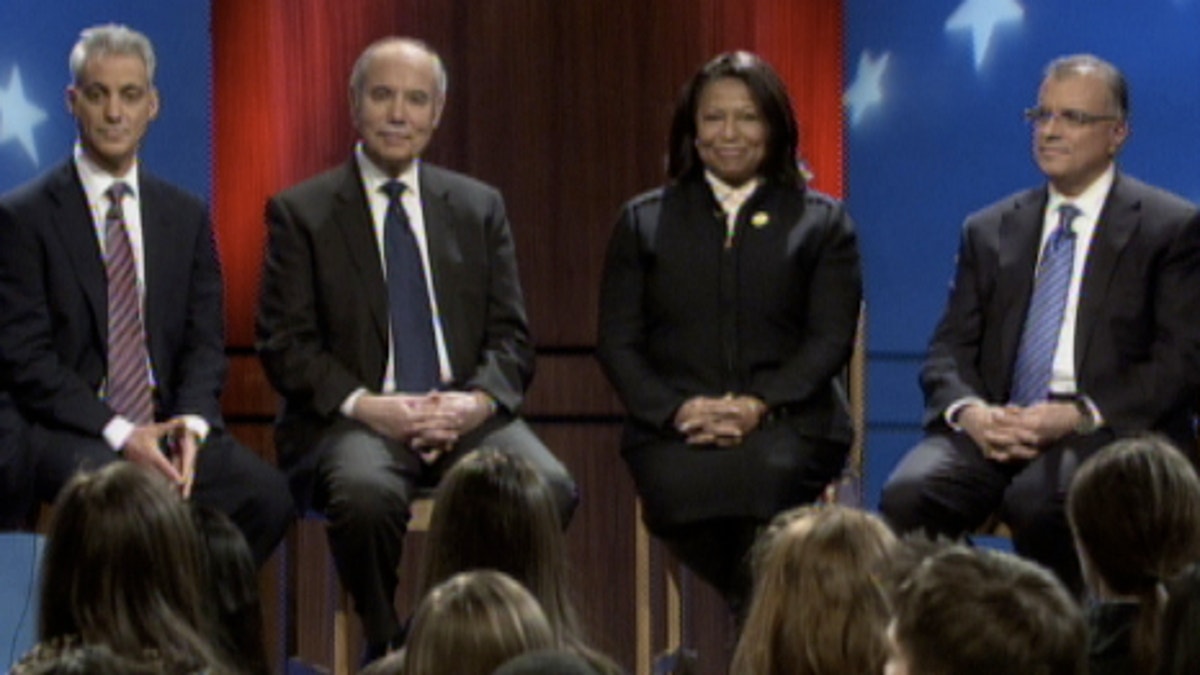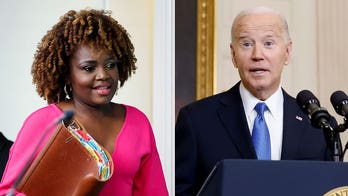
(Fox News)
The first televised debate in the closely watched Chicago mayor's race featured questions from city high school students, many of them too young to vote in February's election. Monday's debate included the top four candidates in the race: former White House Chief of Staff Rahm Emanuel, former Senator Carol Moseley Braun, Chicago City Clerk Miguel del Valle, and former Chicago Public Schools Board President Gery Chico.
No groundbreaking policies came out of the hour-long taped forum. With a studio audience of 250 high school students, the candidates were on their best behavior and didn't ruffle any feathers. They agreed on key issues, including the need for more school funding, recruiting highly qualified teachers, and making investments to keep neighborhoods safe.
Most of the students in the audience, including those selected to ask questions, will not be old enough to cast a ballot in the mayor's race. However, their questions touched on the troubling issues inner city teens deal with on a daily basis. Several students explained that it takes them more than an hour to get to school using public transportation and expressed the need for reliable bus service. Another student asked candidates how they plan to make city streets safer since he has to deal with intimidation from gang members on his way to school. Other topics: how to lower the extremely high drop out rate, which hovers at 47%, how to evaluate teacher performance, and how to prevent harassment and bullying in schools.
The question referencing bullying clearly struck a nerve, prompting one of the debate moderators to ask the candidates if any of them had been bullied at school. Three out of four raised their hands. During the post-debate press conference, Rahm Emanuel was asked to elaborate on his bullying experience back in 1968, which he said occurred when he returned from a trip to Israel and his skin was "quite dark." Emanuel said some kids at school made racial comments to him and took his bike away.
"They beat me up and took my bike," he said. Emanuel added that it paid off to have a younger brother who was larger in size.
The Chicago public high school students participating in Monday's televised debate are members of the Mikva Challenge, a nonpartisan group that gives low-income students a platform to engage in politics and public service. The program is named after former White House Counsel Abner Mikva, who served in the House of Representatives for five terms.
The mayoral candidates will face off again next week, this time in a live televised debate.




